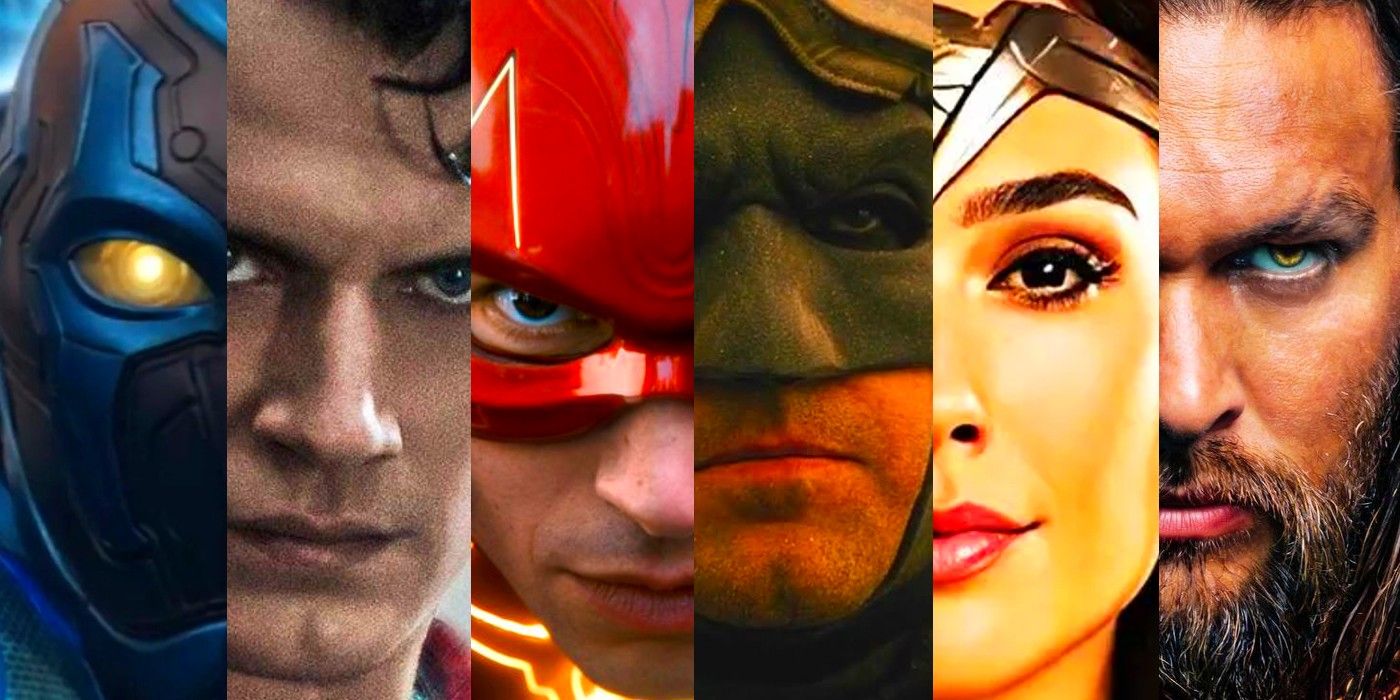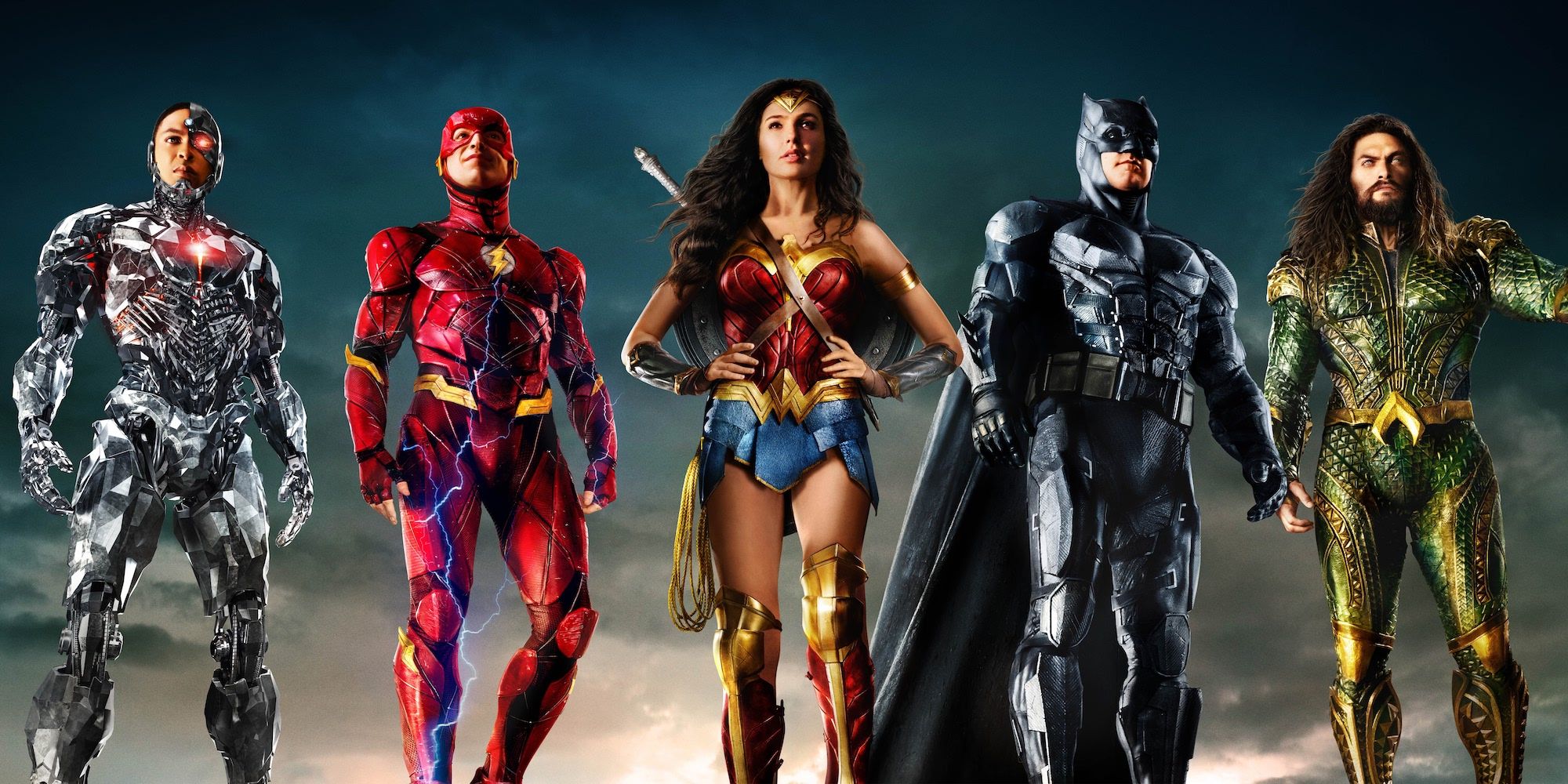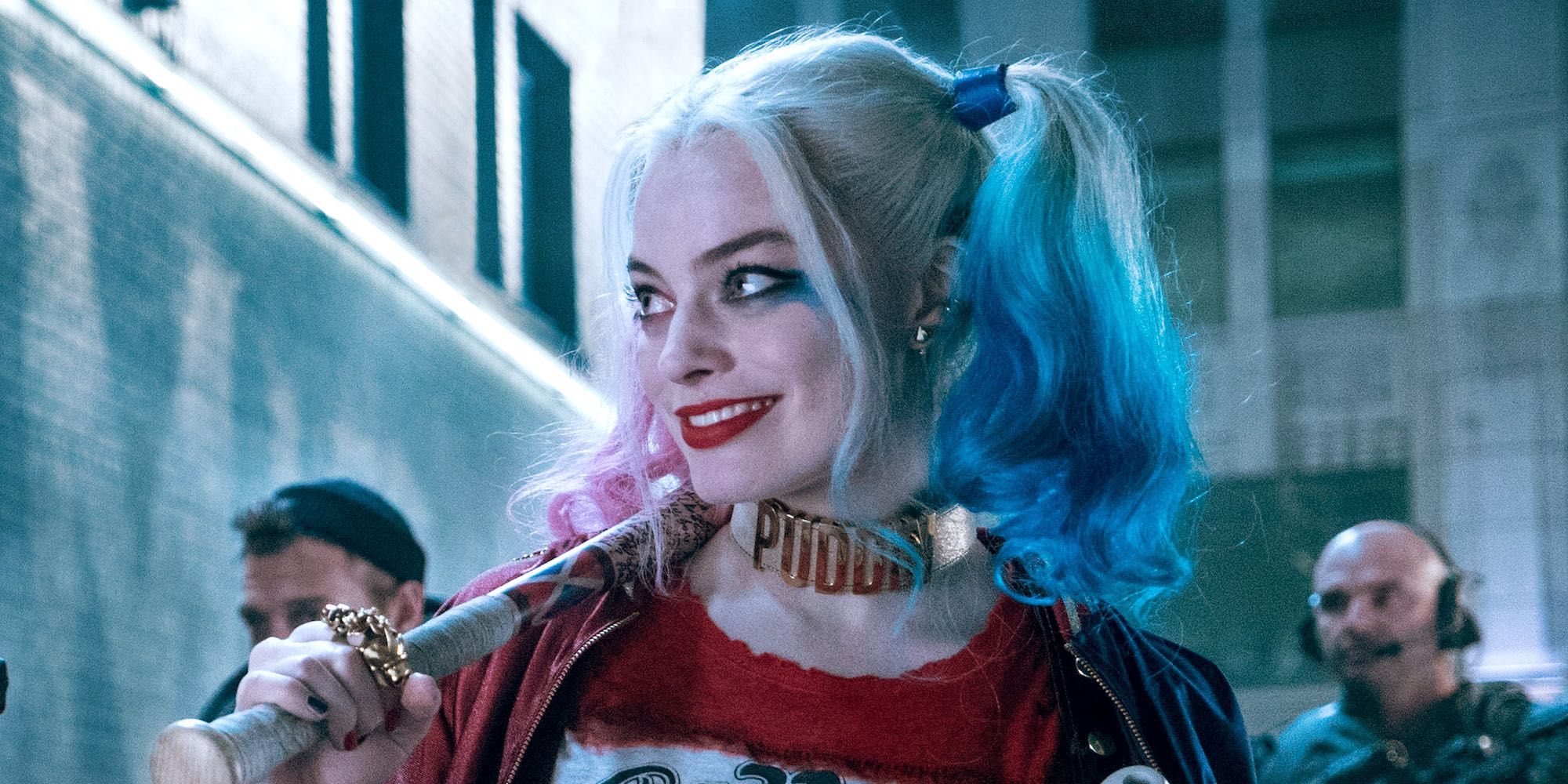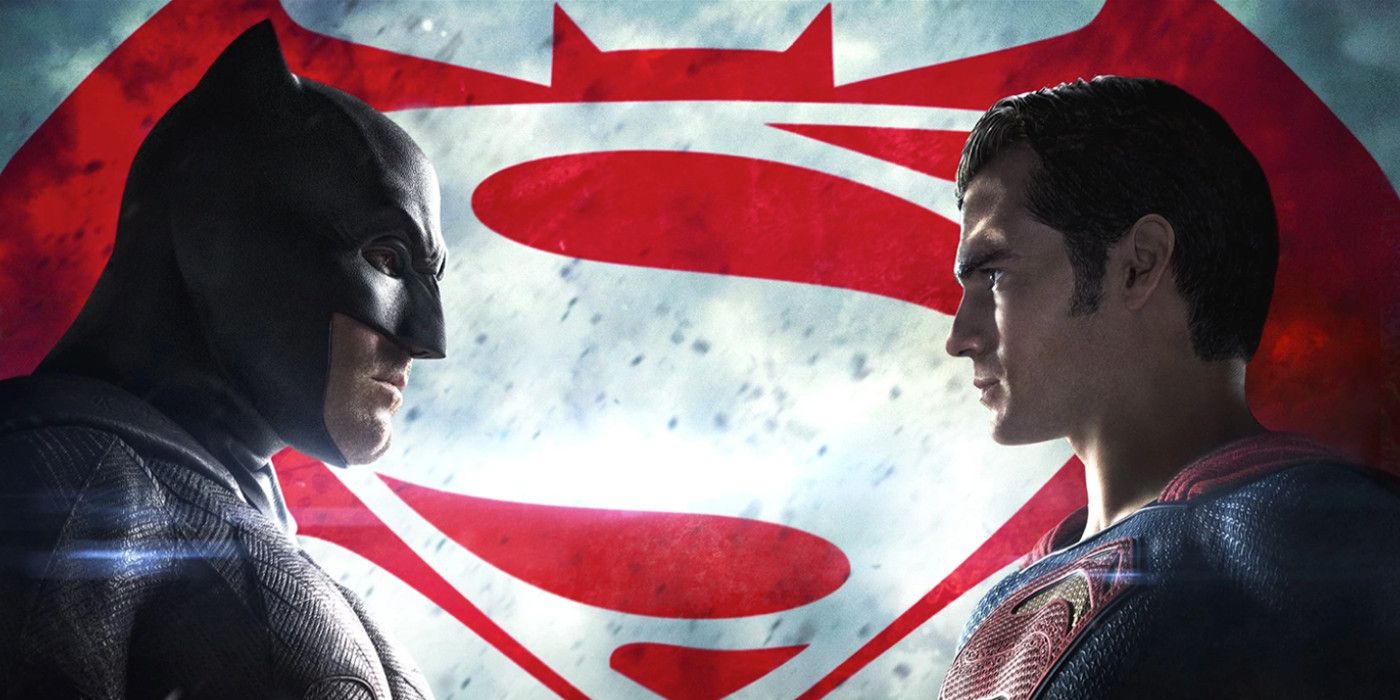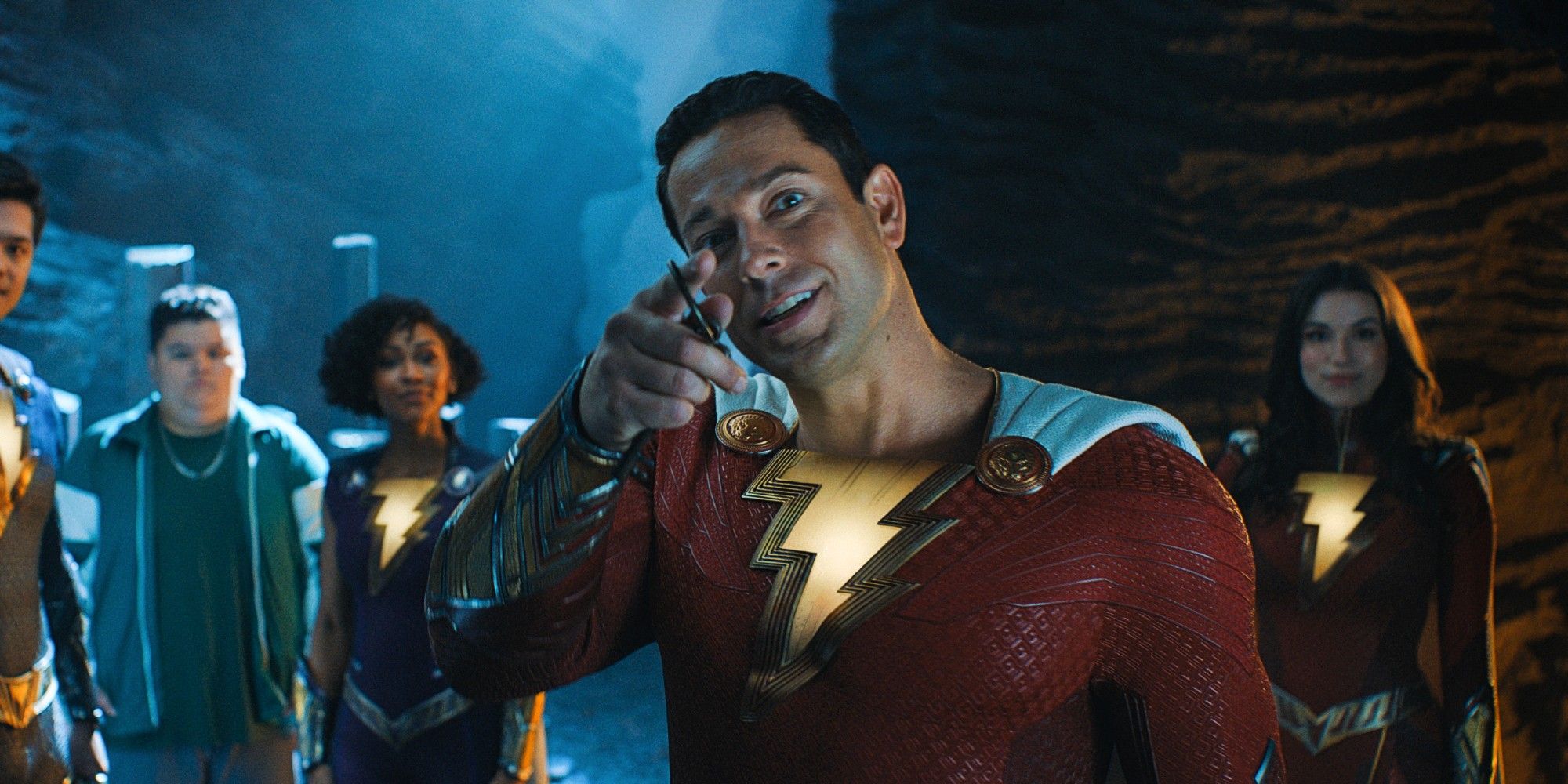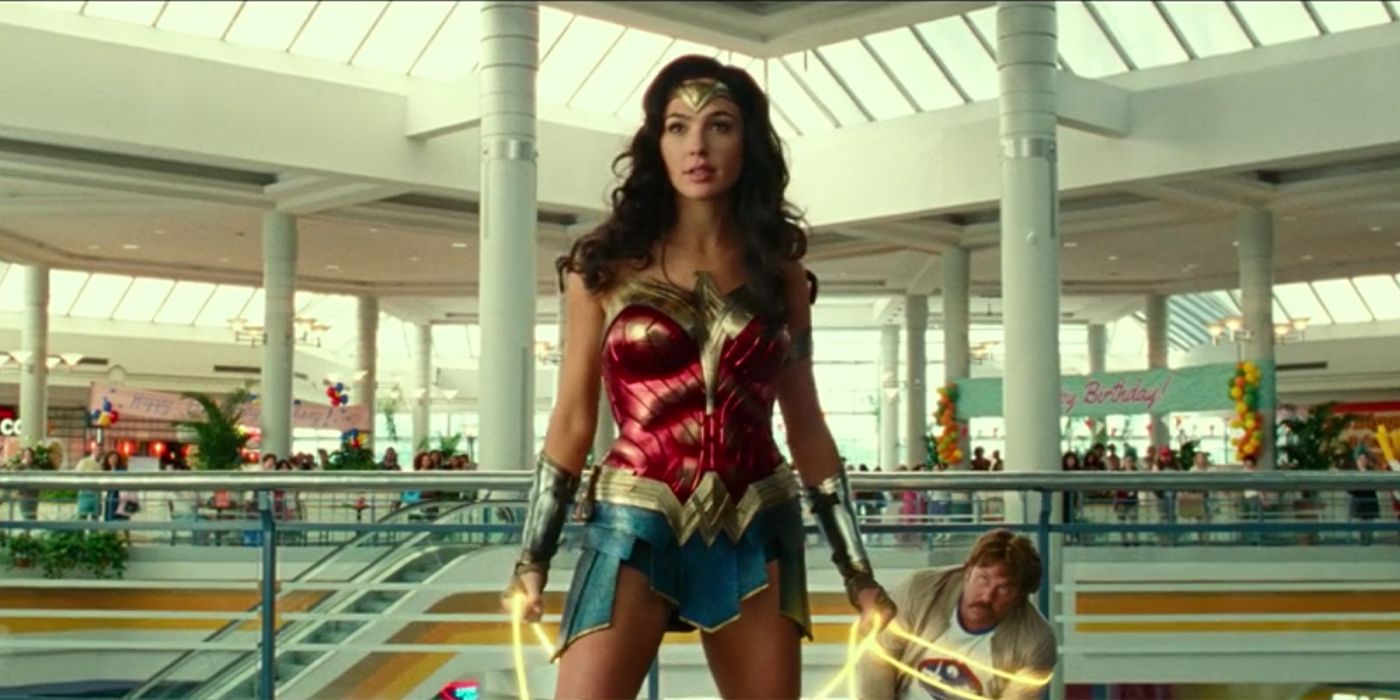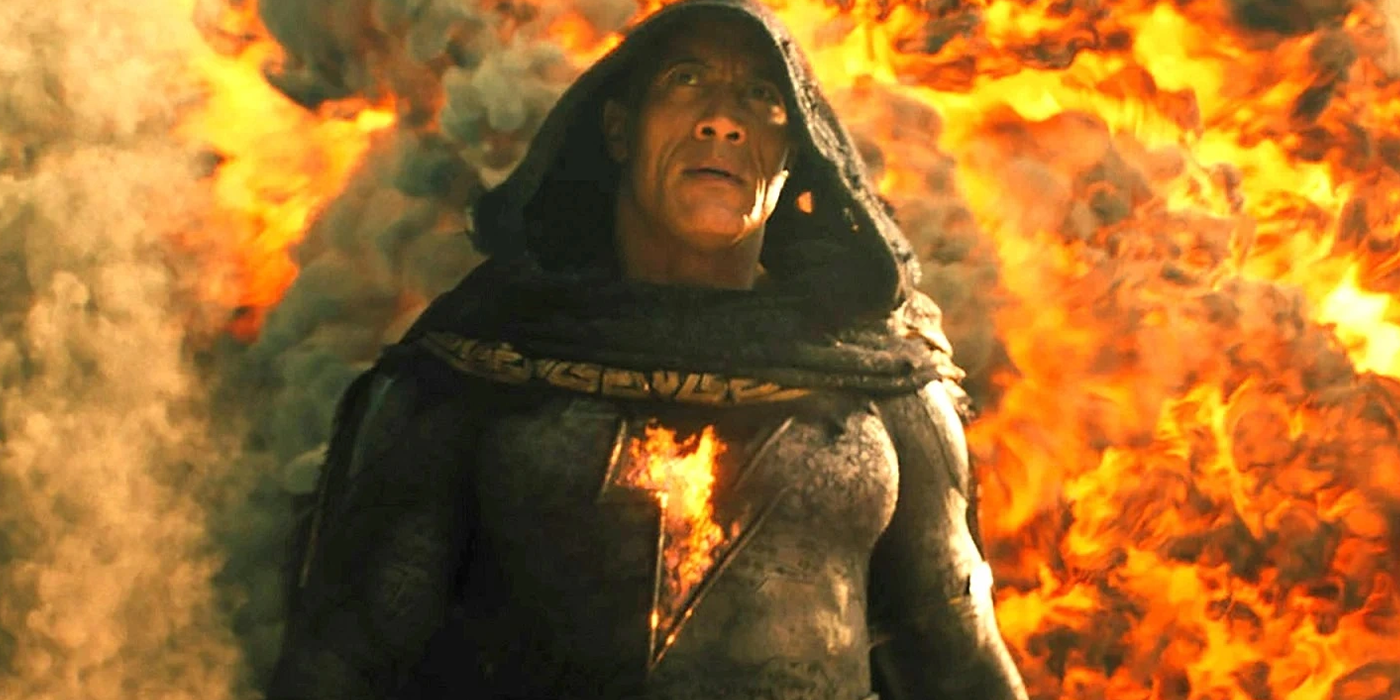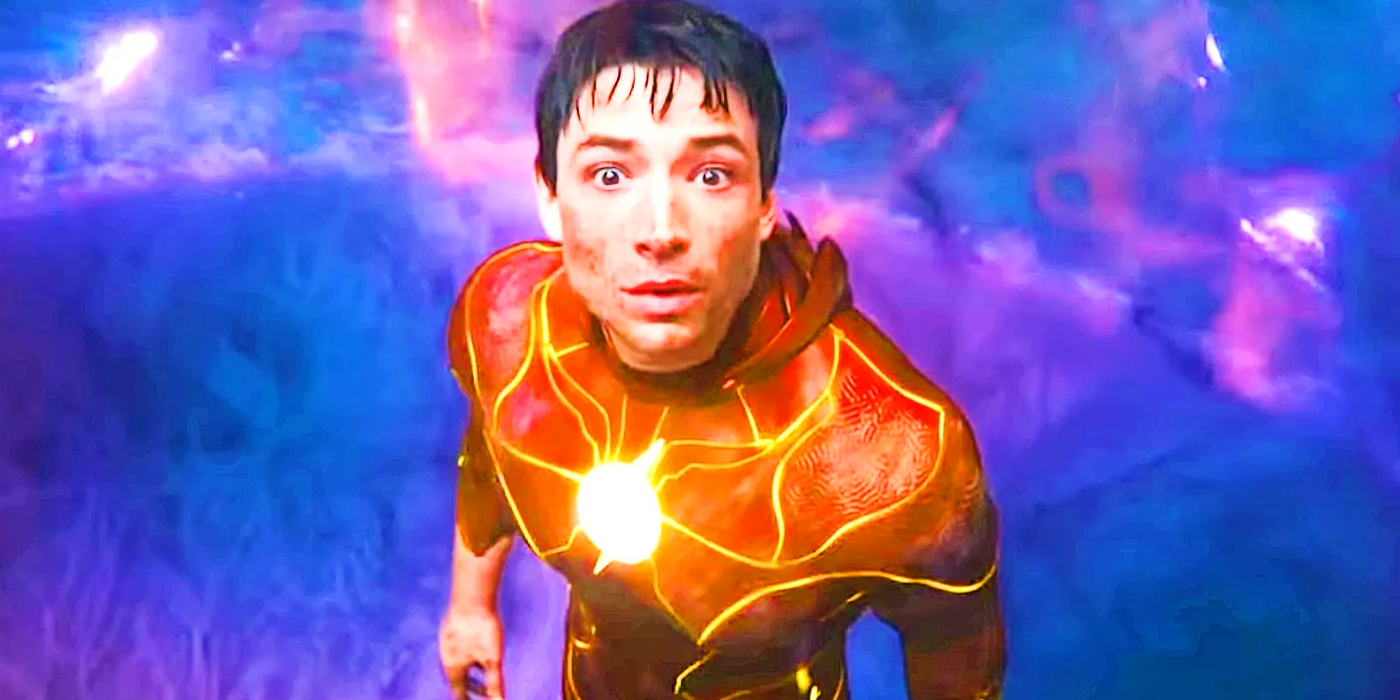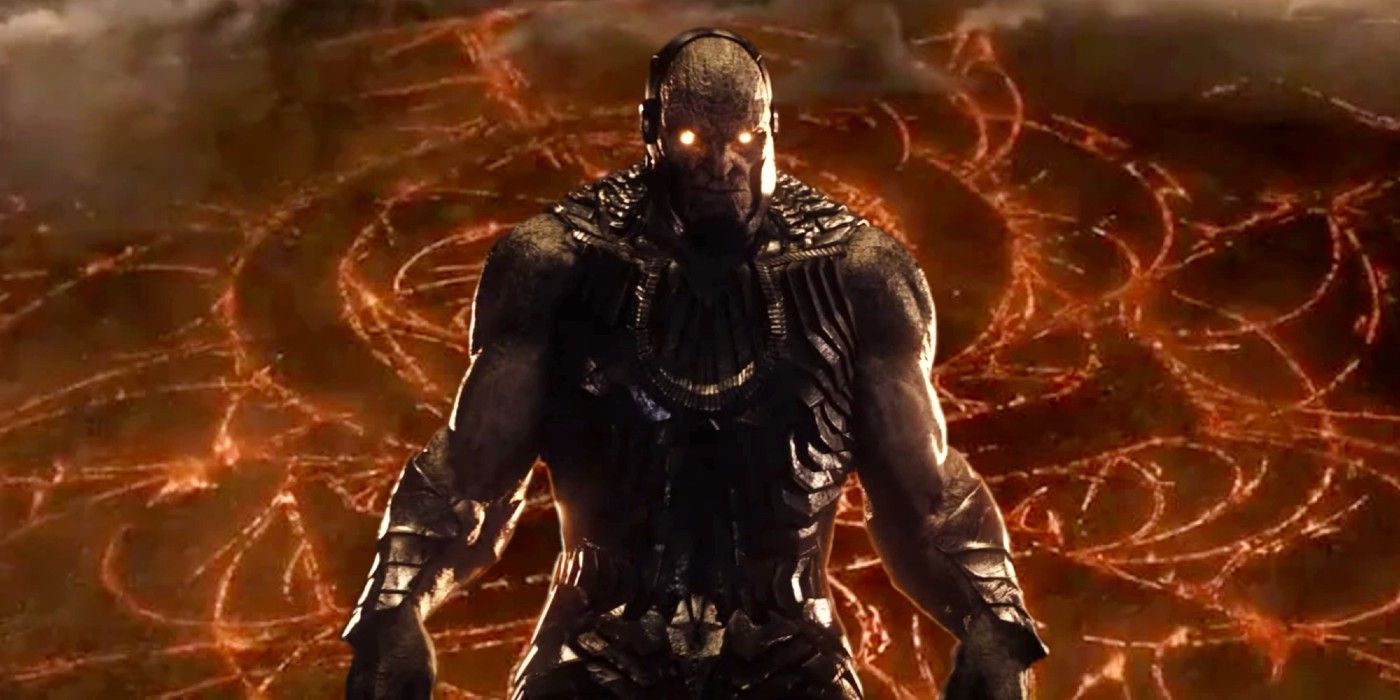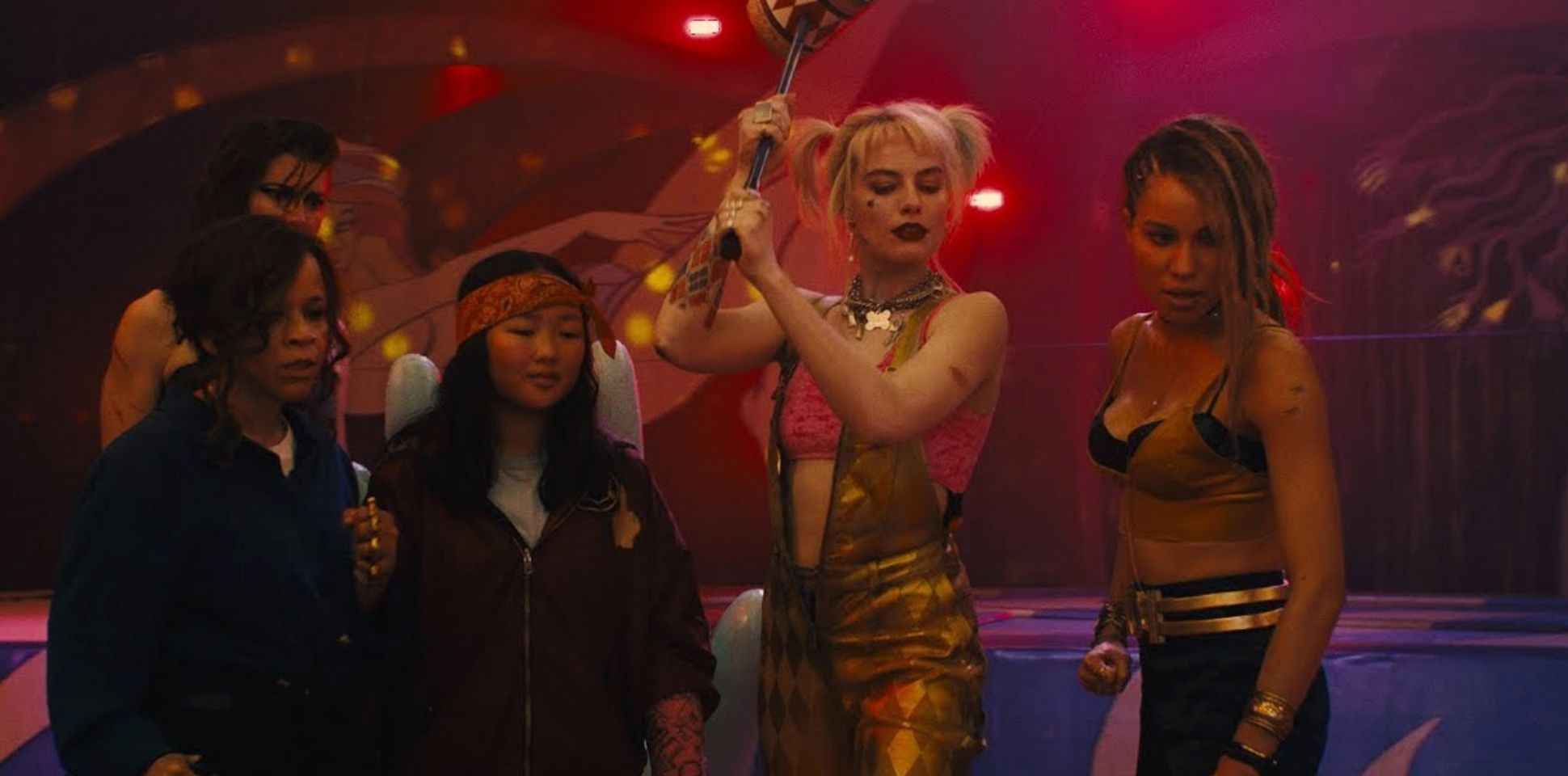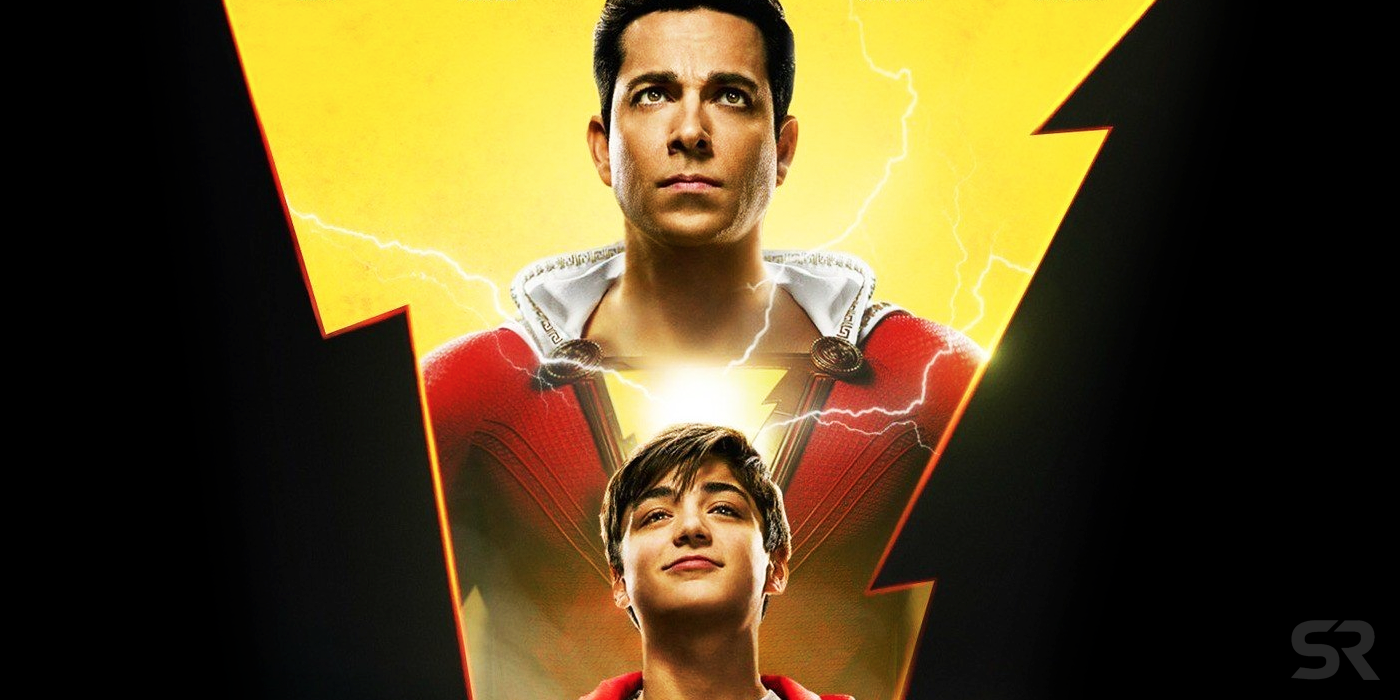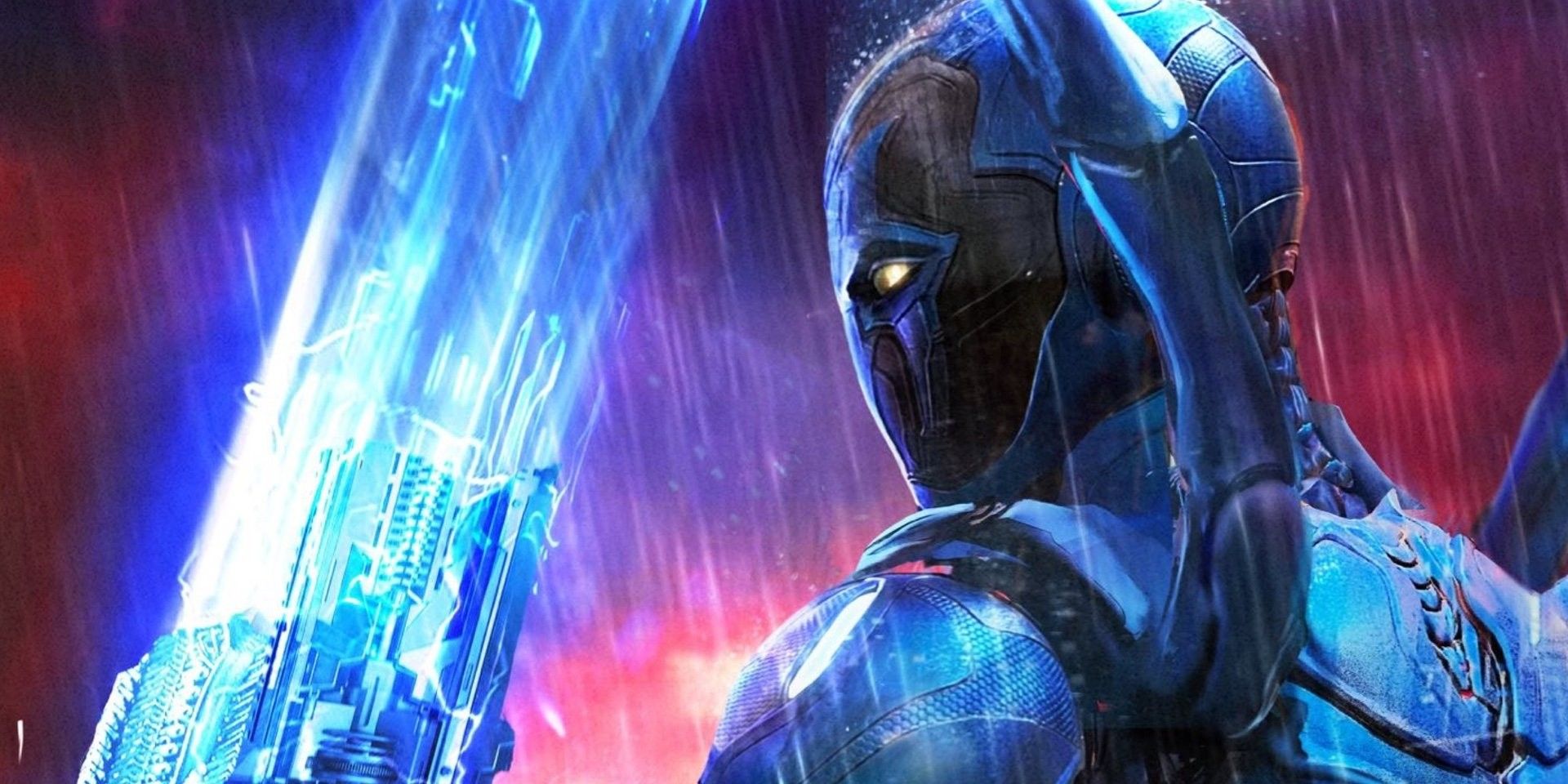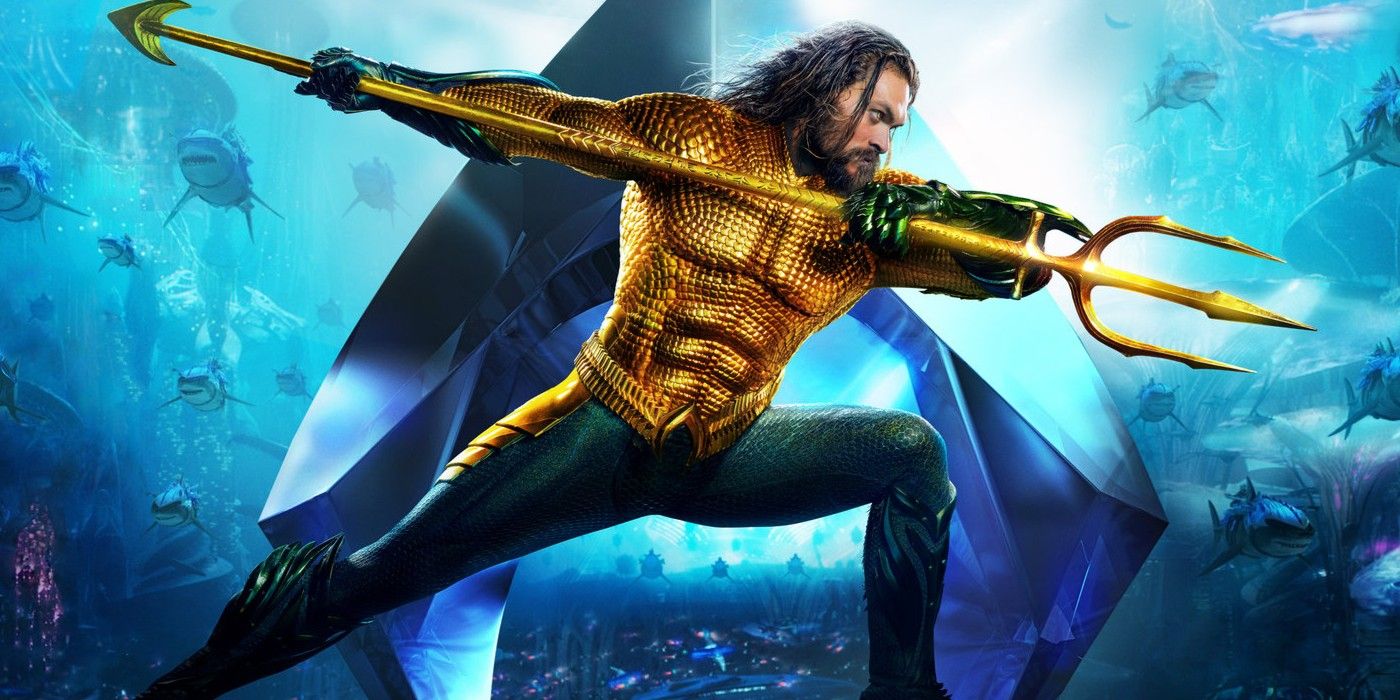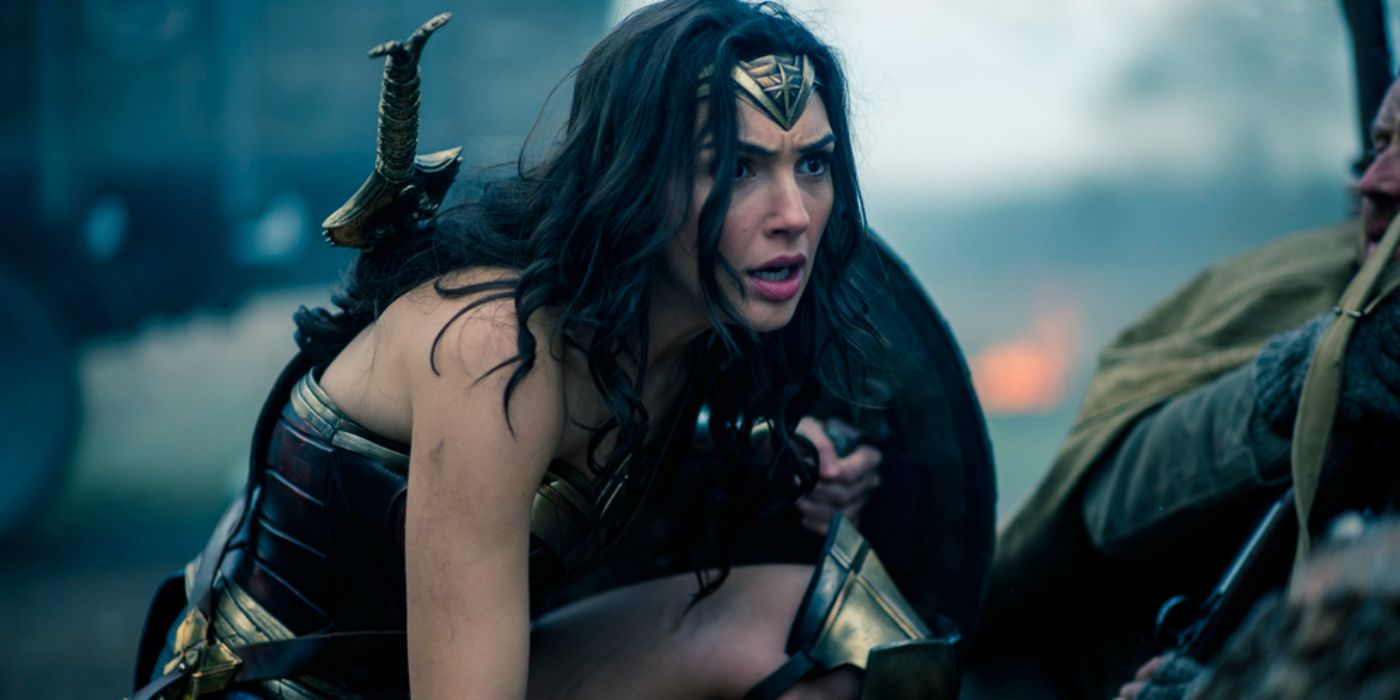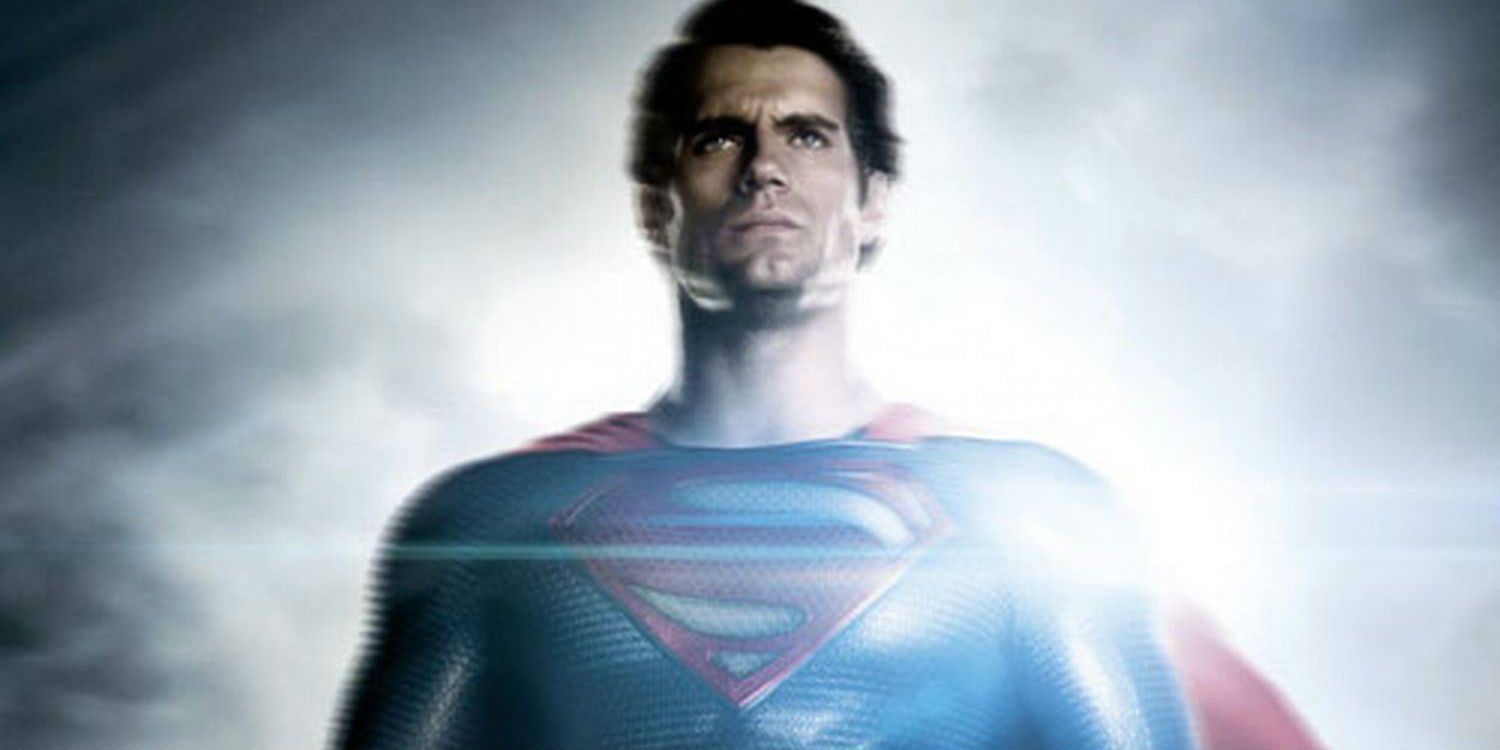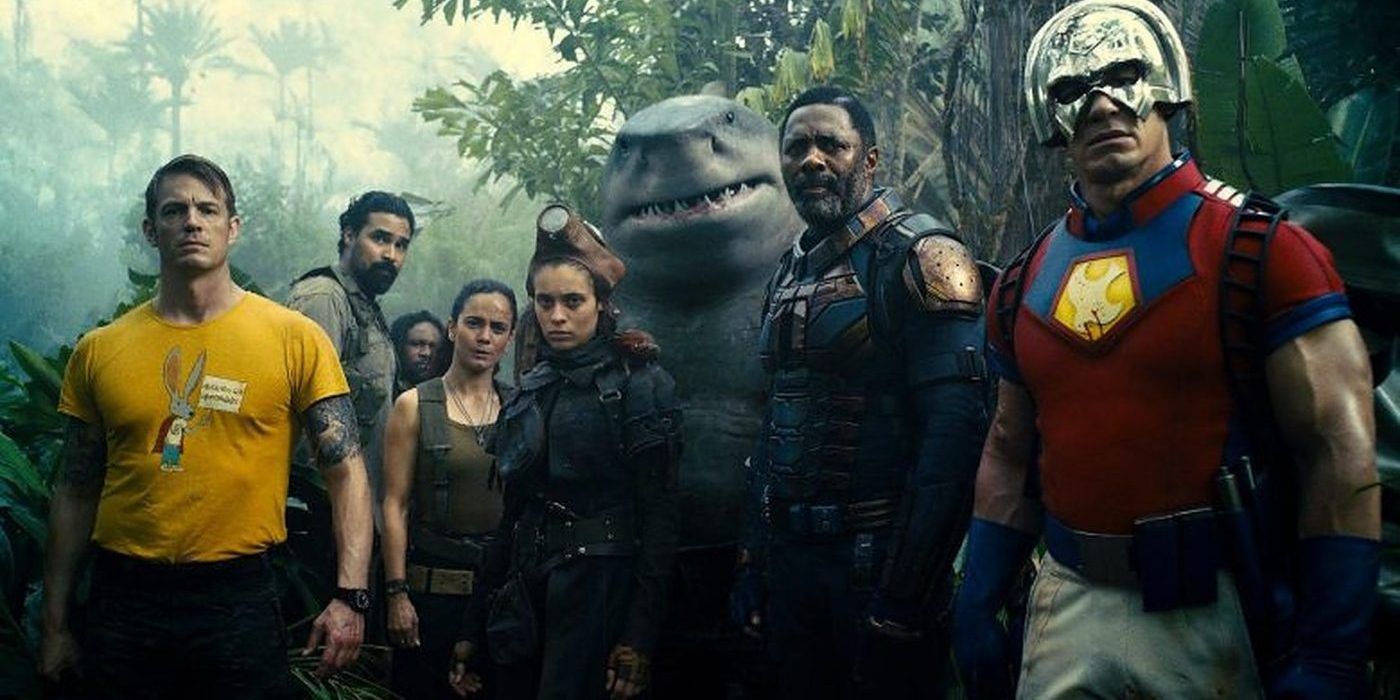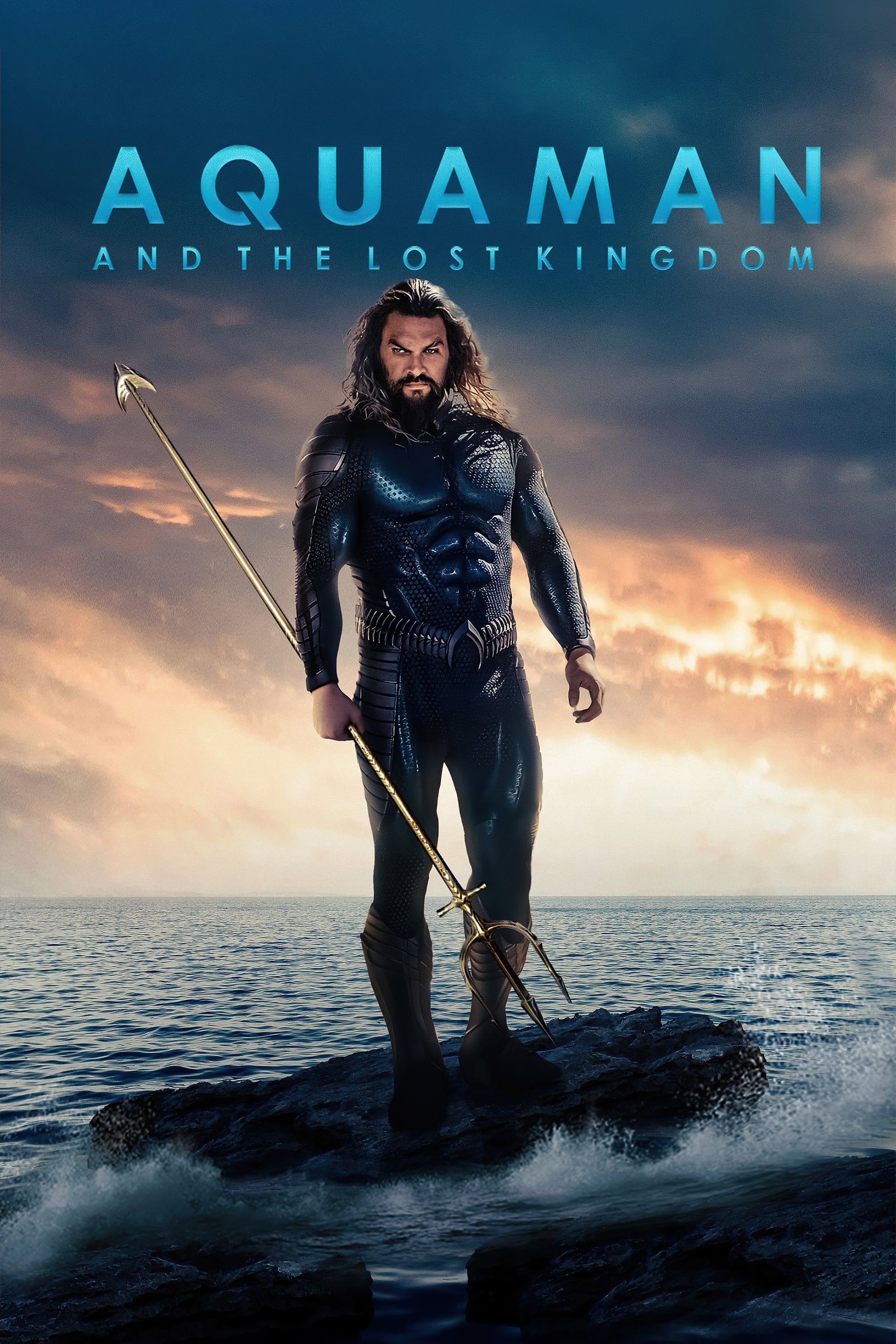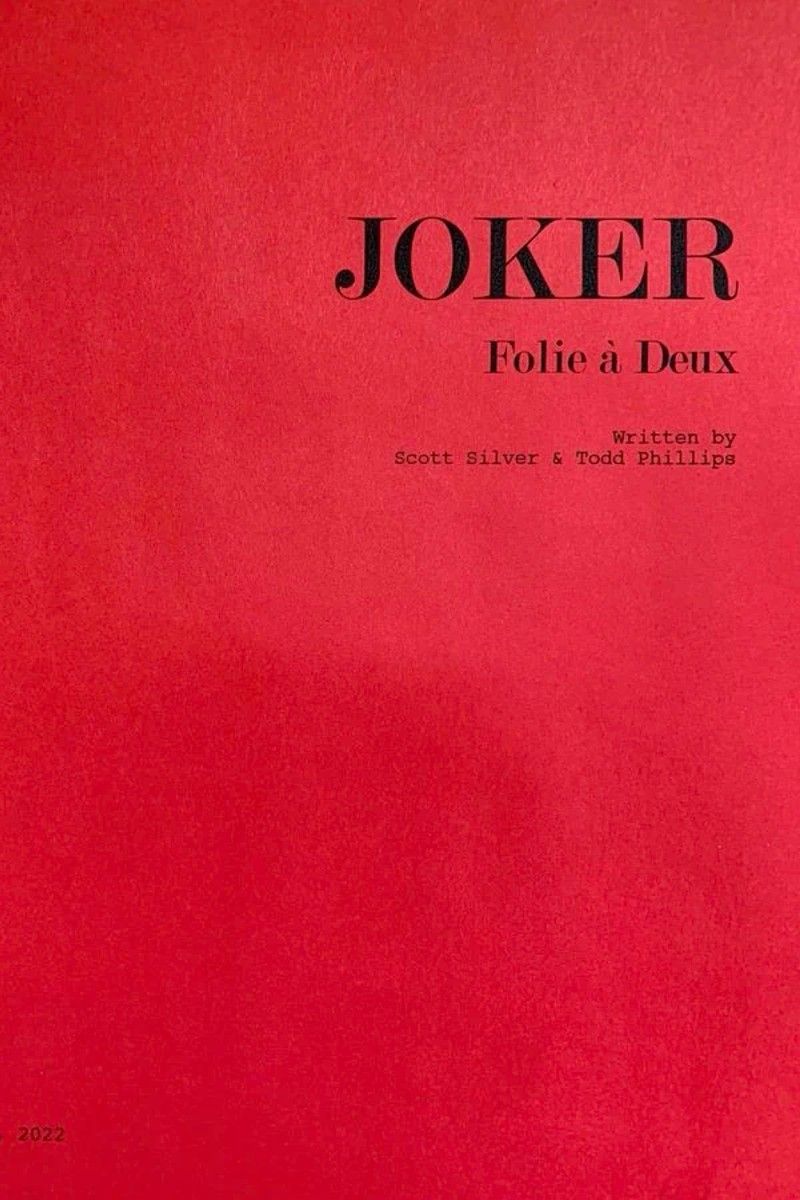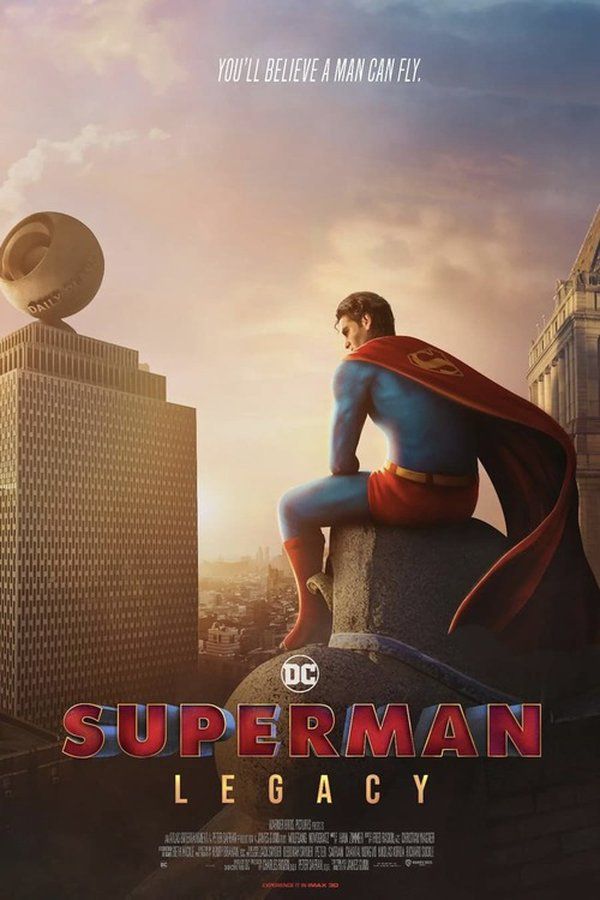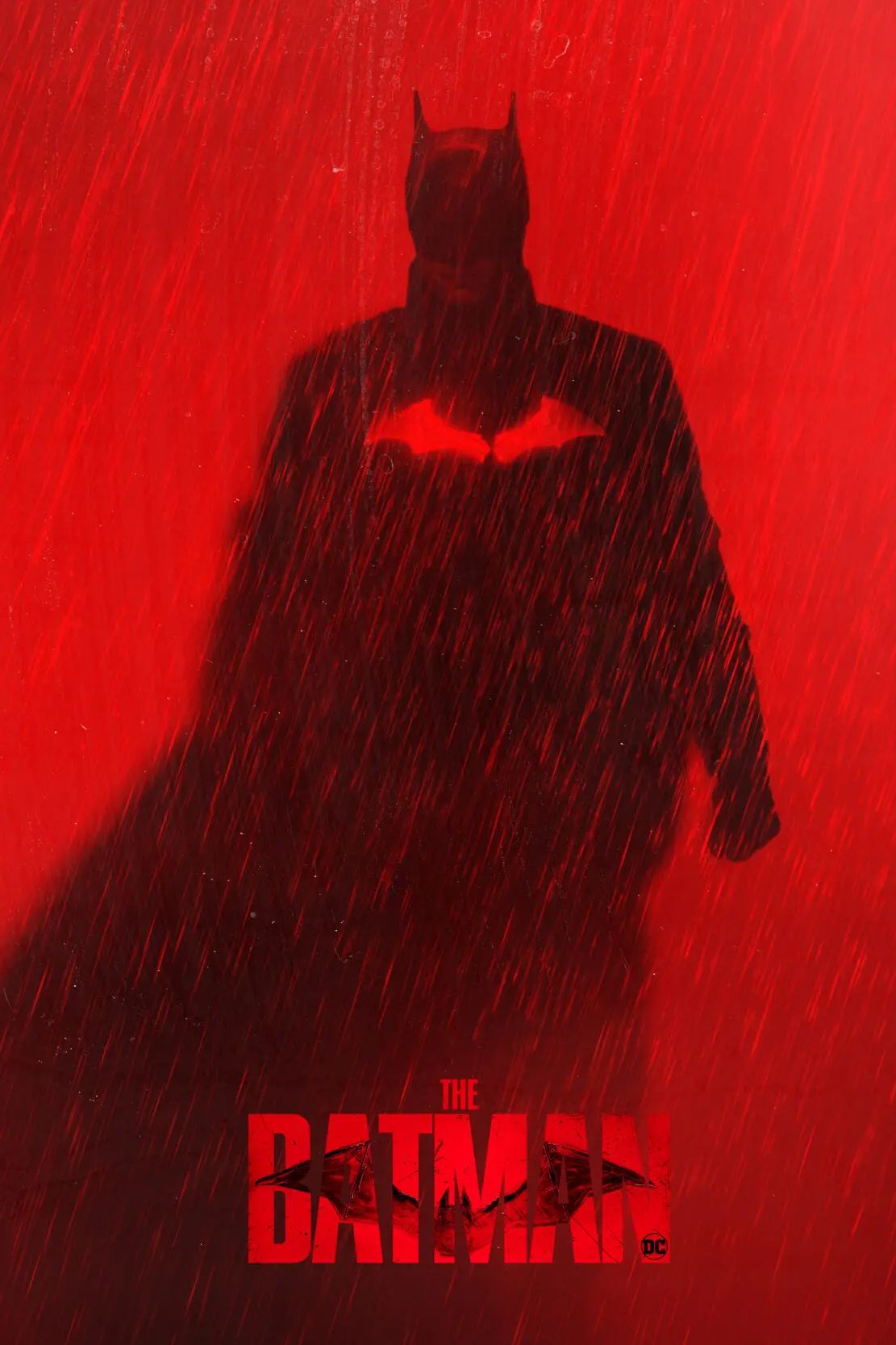Summary
- Blue Beetle offers a breath of fresh air to the DCEU, unburdened by the weight of its predecessors and carrying hope for the future.
- Justice League suffered from production issues, resulting in a Frankenstein's Monster of a film that fails to complete plotlines.
- Batman v Superman: Dawn of Justice divided critics and fans, with its depth of imagery and iconic introduction of Wonder Woman as strengths. Here's how the rest of the DCEU ranks...
What's the best DCEU movie? Some fifteen movies in, the franchise initially built on Zack Snyder's vision has suffered several identity crises over its 10-year run. Man Of Steel was a triumph, even as it was divisive, and almost every release since has come with at least one caveat. Into that context, Blue Beetle feels like something of a breath of fresh air, unburdened by the weight of its predecessors and carrying genuine hope for the future.
There's been controversies, missed opportunities and as many high profile exits and fall-outs as there have been perfect castings, but how does every DCEU movie rank? Here's a run through of every film in this franchise so far, ranked from worst to best. Every movie will be critically assessed, with strengths and weaknesses carefully examined to justify its placement, including 2023's Blue Beetle.
15 Justice League
When Warner Bros. first announced Justice League, they intended it to be the triumphant culmination of everything the DCEU had been working towards since 2013. Unfortunately, it all went badly wrong; director Zack Snyder left partway through production, with Joss Whedon taking over and conducting a massive amount of additional photography. The result is a Frankenstein's Monster of a film that's true to neither Snyder nor Whedon, and fails to complete the plotlines seeded in previous movies. Henry Cavill's CGI-replaced mustache is infamous, but the whole movie suffers from the enforced changes.
Previous DCEU movies Man of Steel and Batman v Superman: Dawn of Justice were essentially social parables told through the lens of a superhero film, but Justice League plays it straight - and as a result, feels very much lacking when compared to its predecessors. It's telling that, several years after Justice League's release, the only conversation about it is whether or not the Snyder Cut is better (and the fact this version of Justice League is at the bottom of our lists serves as our answer).
14 Suicide Squad
Before Justice League, Suicide Squad was another DCEU film fundamentally altered once production had wrapped. In early 2016, Warner Bros. grew concerned the tone of David Ayer's film didn't match with the inspired marketing campaign, with the disappointing box office performance of Batman v Superman reportedly leading them to change strategy. In the end, the final theatrical cut was essentially two different versions - one from the director, one a trailer house - stitched together during post-production and feeling more than a little unfinished.
The introductory sequence presents the team's backstory in a series of flashbacks, interspersed with the kind of fun graphics that featured in the trailers. Unfortunately, and rather jarringly, those graphics are then ditched completely for the rest of Suicide Squad. To give a sense of just how disjointed this movie really is, there are no less than two scenes in a row in which Viola Davis' Amanda Waller explains why the world needs Suicide Squad and just what the team is supposed to be about.
As choppily edited as Suicide Squad may be, it has some inspired casting. The real stars are Margot Robbie's Harley Quinn and Davis' aforementioned Waller, both of whom inhabit their roles perfectly. Indeed, it's telling Warner Bros. has moved Harley Quinn to the forefront of their plans, with the troubled antihero leading Birds of Prey.
13 Batman V Superman: Dawn Of Justice
The second film in Zack Snyder's loose trilogy of DC movies, Batman v Superman: Dawn of Justice marks the point at which the DCEU truly became divisive. Batman v Superman was scorned by critics, but is viewed as a cult classic by fans of Snyder's cinematographic style. The difference in opinions is best exemplified by the film's scores on review aggregate site Rotten Tomatoes; it has a Critic Score of just 28 percent against an Audience Score of 63 percent.
Few would deny Batman v Superman has problems; incredibly, it even fails to deliver on the promised battle between DC's two iconic heroes. The fight is set up, but ends with remarkable speed and in a way that frankly feels as though it comes out of the left-field (Martha remains infamous). It then pivots into an entirely different movie, one that makes the bold but questionable decision to kill Superman.
It's possible to be too critical of Batman v Superman, though. Its greatest strength is undeniably the remarkable depth of imagery and symbolism woven into the film by Snyder, with Superman portrayed as a complex and conflicted Christ-figure set against a contemporary backdrop. The introduction of Gal Gadot as Wonder Woman is one of the high points, with Oscar-winning composer Hans Zimmer creating an iconic and unforgettable score for the scene.
12 Shazam! Fury Of The Gods
After the wholesome, feel-good DCEU antidote offered by Zachary Levi's Shazam!, the child-like superhero grates a little too much in the sequel. Let down by a poor marketing campaign, Shazam! Fury of The Gods never quite justifies why it deserved a better one, with Levi's character losing a lot of his shine in the service of meta-jokes and not very funny ones at that. How the mighty had fallen.
The plot is stretched too thin over too many characters, the villains aren't as interesting as their casting may have suggested, and the attempt to tie Shazam!'s comfortable annex to the wider DCEU proves distracting to the point of near-disaster. The wise-cracking proves tiresome all-too-quickly, some of the pop references felt dated even on release, and Fury of the Gods may be remembered more for the on-release marketing that saw Levi draw more attention than the sequel managed on its own.
11 Wonder Woman 1984
Expectations were high for Wonder Woman 1984, which had the misfortune of releasing at the height of the coronavirus pandemic. Unfortunately the film is rather disappointing, largely because of a muddled plot and some very strange creative decisions - notably a bizarre body-swapping decision so uncomfortable it was excised from the junior novelization. Gal Gadot and Chris Pine are excellent, and the chemistry between them comes close to justifying the decision to bring back Wonder Woman's lost love Steve Trevor. Pedro Pascal shines as Maxwell Lord, the power-hungry billionaire whose quest for an ancient artifact called the Dreamstone risks dooming all life on Earth, but that performance is likely to date Wonder Woman 1984 significantly; he's certainly channeling Donald Trump.
10 Black Adam
Despite a marketing campaign that saw Dwayne "The Rock" Johnson so heavily lean on Superman that the Man Of Steel might have felt compelled to buckle, Black Adam ended up not quite being a sum of its parts. The introduction of the Justice Society, and spot on casting that included Johnson himself but mostly nailed all of the heroes was absolutely the high point, but generally, Black Adam was not the Earth-shaking DCEU revolution its hulking lead actor promised.
The anti-hero focus meant Black Adam could explore darkness without turning the lights out or going as brazenly evil as the two Suicide Squad iterations, but it's still very much a tale of another DCEU movie with a wayward plot and an underwhelming villain. Johnson is good for his money as Black Adam himself, and there's a confident swagger in the way the movie promises more beyond its credits, but Black Adam will not be remembered as the very top tier of the DCEU when the dust finally settles.
9 The Flash
For all the complaints about The Flash's CGI problems, and the nostalgia-bait of the DC superhero cameos in its multiverse, Andy Muschietti's spaghetti soup of a Flashpoint adaptation still ticks a lot of boxes. Brave in vision and compelling in story, The Flash was always a difficult prospect thanks to behind-the-scenes turmoil, delays, and the unfortunate truth of James Gunn's impending DCU reboot. On the other side of the coin, it was also something of a free-hit for Warner Bros (though an expensive one), which could do more creative things than strict adherence to a unified timeline might offer. And you to have to admire how much it tried.
In the shadow of Ezra Miller's off-camera controversies, The Flash's cast is buoyed massively by Michael Keaton's appearance, which amounts to way more than empty nostalgia. Beyond him, Sasha Calle's Supergirl is a bold new direction, even if she's a little underused. Miller's twin roles as Barry Allen are on point in a vacuum, but their absence from the marketing says a lot about the murky morality behind the movie coming out. But even with the barrier of the DCU reboot robbing it of relevance, The Flash is fun, spectacular enough to make the CGI bearable if you squint, and manages to justify its existence. It's a low bar, in that respect, but viewed on its own merits, it's solid.
8 The Snyder Cut
The Snyder Cut of Justice League was finally released on HBO Max, and while it may not officially be part of the DCEU, its tangential status means it really deserves a place on this list. The Snyder Cut is infinitely better than the theatrical release of Justice League, but still somewhat stands as testimony to the fact that sometimes studio editing is a good thing; the first third in particular is meandering, and you definitely get the sense a good hour or so could be cut from this four-hour-long epic without any real loss.
Ray Fisher's Cyborg stands as the star of the Snyder Cut, with a tremendously effective character arc that makes him the most important member of the nascent Justice League. The final battle between the Justice League and the forces of Steppenwolf is well-executed, a conflict truly suited to Snyder's mythic style; although Superman's revival still proves decisive, it doesn't feel quite so absurd as in the theatrical cut. This is easily one of Zack Snyder's best superhero movies, and Warner Bros. made a big mistake not editing this for the big screen in the first place.
7 Birds of Prey
Cathy Yan's Birds of Prey is really a Harley Quinn movie with various badass female characters as backup. And it's exactly what you'd expect from a Harley Quinn film; a madcap rollercoaster ride through Gotham City, as Harley struggles to escape the Joker's shadow while saving a teenage pickpocket who's unwittingly become Gotham's Most Wanted.
Birds of Prey isn't exactly deep - aside from Harley herself, the Birds of Prey often feel reduced to popular tropes, and the film doesn't exactly help matters by having Harley lampshade that fact. The narrative style is fun and eclectic, representing Harley herself as the unreliable narrator, and it just about works - with a few stumbles. Oddly enough, Birds of Prey doesn't really feel as though it earns its R-rating, with the few graphic scenes feeling unnecessary; it might have performed better in the box office if Warner Bros. had gone with a lower rating.
6 Shazam!
In terms of sheer, unadulterated fun David F. Sandberg's Shazam! is almost unbeaten. Starring Asher Angel as Billy Batson and Zachary Levi as the adult superhero he transforms into, Shazam! is a wild and irreverent ride. The marketing had focused on the humor, and almost all the jokes land perfectly, but tonally Shazam! blends light and dark with effortless ease. The emotional core of the film is the relationship between Billy and his foster-brother Freddy (Jack Dylan Crazer), which shines a light on Billy's self-centered character and ultimately forces him to wake up to the fact he has all the family he needs.
It's the third act that differentiates Shazam! from many other superhero films. Superhero blockbusters often struggle to make their finale work, losing their themes in a pretty standard "beat the bad guy" action sequence or a CGI-fest. In the case of Shazam!, though, the script pulls all the threads together in an emotionally satisfying way. While it's true some of the secondary characters don't really get enough time to shine, that's an understandable problem given how many foster-siblings Billy has.
5 Blue Beetle
It's fair to say Ángel Manuel Soto's Blue Beetle had a mountain to climb before its release. Initially intended for release on HBO's Max only, the first solo outing for Xolo Maridueña's Jaime Reyes (AKA Blue Beetle) was elevated to a theatrical release, but was forced to then contend with the strikes that made marketing a huge challenge and the ominous shadow cast by The Flash's box office disaster. But Blue Beetle is the little beetle that could, and its positive score for representation absolutely should be a point of pride for all involved.
Blue Beetle works as a DCEU movie and a DCU movie, dropping only meager nods to both Superman and Batman, and requiring basically no homework (even from the original DC comics). Is it, first and foremost, a family story that also happens to have a superhero dynamic to it and it's Jaime Reyes' family that really drives the narrative. That proves to be the catalyst for a funny, endearing story with the right balance of cheesier moments and touching ones, an emotional punch and a strong message. The effects are occasionally uneven, which is a pain point for way too many superhero movies that rely on VFX so heavily, but it's at least a step up from The Flash's visual soup in that respect.
Impressively, Blue Beetle also has the confidence to set up a sequel, with the mid-credits scene promising the shape of the story for Blue Beetle 2 and Jaime Reyes' place in the rebooted DCU. If the box office returns prove impressive enough, James Gunn's promise that Reyes will return as Blue Beetle as a DCU character should be assured. Even without that, there's enough promise here and in Xolo Maridueña's performance to suggest the future is still bright.
4 Aquaman
Starring Jason Momoa as the titular hero, Aquaman is one of DC's strongest films to date. It's not a perfect movie - there are problems with the CGI, and the glorified "treasure hunt" plot doesn't quite work - but Aquaman is buoyed by director James Wan's lavish world-building as he explores DC's version of Atlantis. Momoa is perfectly cast, and there's tremendous chemistry between him and his co-star, Amber Heard. Wan is a horror director by trade, and that shows in his use of the Cthulhu mythos and an attack by the monstrous race known as the Trench. In a beautiful thematic twist, though, these monsters prove to be the Sea King's first army - and his most reliable allies. The plot acknowledges Aquaman is commonly mocked for being a superhero who can talk to fish, and turns that much-derided ability into his greatest power.
Aquaman contrasts markedly with the earlier DCEU films. Where Man of Steel was dark and somber, Aquaman has a zany energy that just about sustains it. The film could probably have done with a little bit of editing in the middle, but on the whole it's a very effective movie indeed.
3 Wonder Woman
Undeniably the most influential film in the DCEU to date, Wonder Woman broke the glass ceiling for female superheroes. Patty Jenkins' movie was lovingly-crafted, and proved a female-led superhero flick could be a success - it grossed over $800 million worldwide. Jenkins and star Gal Gadot undoubtedly made a perfect team, with Wonder Woman presented as a complex, layered individual who was battling to bring an end to all war. The standout scene is one in which Wonder Woman steps into No Man's Land, drawing enemy fire and giving the Allies a chance to push forwards. It was an action sequence like no other in the superhero genre before or after; more of a character moment than an out-and-out brawl, it symbolized everything the movie was going for.
As with all of the DCEU films, Wonder Woman has its weak points, most pointedly an overlong CGI battle in the third act that undercuts certain themes and doesn't deliver otherwise. But none of that stops it being one of the best, and most important, superhero movies in recent years.
2 Man of Steel
Zack Snyder's Man of Steel reimagines Superman as a 21st Century superhero who is equally feared and distrusted by the world at large. Taking the baton from Christopher Nolan's work in The Dark Knight Trilogy, the auteur director creates a beautiful and dramatic retelling of Kal-El's origin story, spending more time exploring the planet of Krypton than any previous Superman adaptation. Cavill's grim portrayal contrasts markedly with Christopher Reeves', but fits the aesthetic and tone of the nascent DCEU.
In contrast to what would come, it was less the ideas and more the action that proved controversial, specifically the final battle; it's CGI-heavy, and the amount of destruction caused by the fight between Superman and Zod is startling. As a standalone film, Man of Steel was exciting; indeed, it could even have served as the perfect beginning for a loose series of Superman movies in the style of Nolan's Batman films. Somewhat unfortunately, it became so much more; it's the foundation on which every subsequent DCEU movie was built, meaning Snyder's take on Superman (which is frankly "Elseworlds"-esque) was twisted to be the mainstream interpretation of the character.
1 The Suicide Squad
What cannot be overstated is how different James Gunn's bloody, high-octane not-quite-sequel is to the rest of its DC movie siblings. In a franchise that otherwise lionizes the icons of heroism, The Suicide Squad positively wallows in the gutter with the losers. As Gunn proved in the MCU with the Guardians of the Galaxy movies, he has an incredible knack for making his audience care about the lowliest characters - a point reiterated rather pointedly in The Suicide Squad's most heartfelt moment. And if heart is your barometer, there's masses for a blockbuster that centers on a giant Starfish fighting a bunch of D-level DC comics villains.
The cast is phenomenal, including those with limited screen-time, with Idris Elba's Bloodsport, John Cena's Peacemaker, Sylvester Stallone's King Shark (mo-capped by Steve Agee), David Dastmalchian's Polka-Dot Man, and particularly Daniela Melcior's Ratcatcher 2 all standing out. Add to that a triumphant reinvigoration of Joel Kinnaman's Rick Flag and more great work by Margot Robbie as DCEU totem Harley Quinn, it's a recipe for great success.
There are perhaps some pacing issues, partly because of the shock comedy set-up of the opening act (which gives a few too many characters plot armor for too long), but The Suicide Squad is as fun and as bold as its predecessor was unfortunately misguided. It's not for kids and the gore does wade rather into Troma waters (which is sort of the point), but Gunn manages to give pretty much all of his characters a memorable moment and there's more than a touch of pathos to proceedings, which the DCEU has never quite managed to capture so far.

